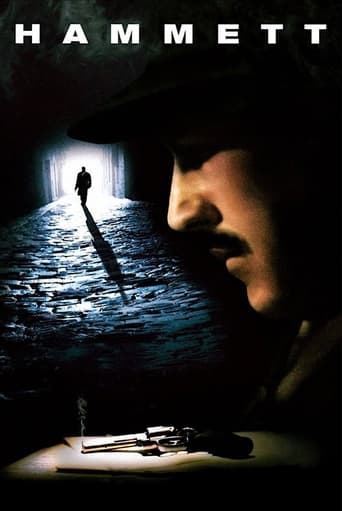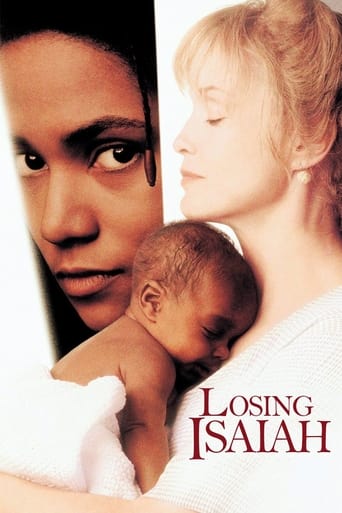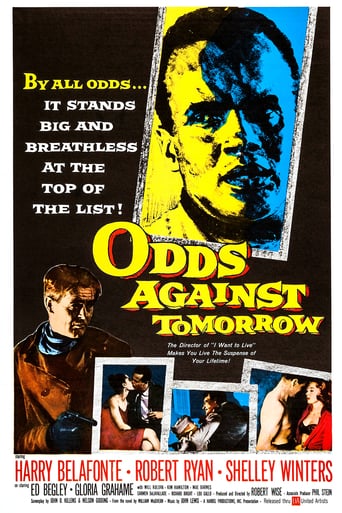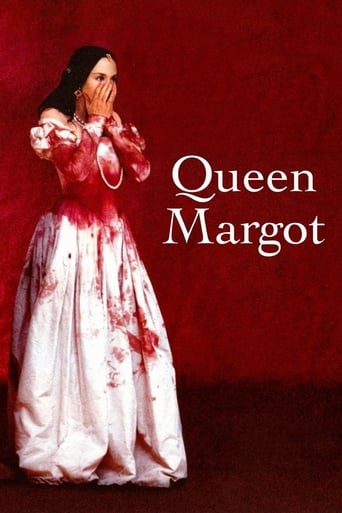
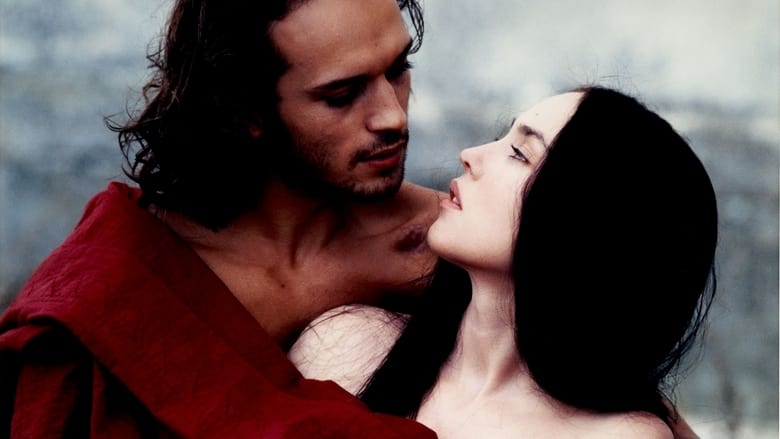
Queen Margot (1994)
Paris, Kingdom of France, August 18, 1572. To avoid the outbreak of a religious war, the Catholic princess Marguerite de Valois, sister of the feeble King Charles IX, marries the Huguenot King Henry III of Navarre.
Watch Trailer
Cast


Similar titles
Reviews
One of the rare movies that really give us a chance to look into a different world, a different age and let us wonder how those times really were and how it would be to live in those parts of history. And, last but not least, we get on top an absolutely fabulous Isabelle Adjani, playing Marguerite de Valois dite La Reine Margot, the sister of the Catholic King Charles IX.The game takes place in the night of August 24, 1572, known as the Massacre of St. Bartholomew (Massacre de la Saint-Barthélemy). A few days after the wedding day of the king's sister Margot to the Protestant Henry III. of Navarre Catholics killed thousands of Huguenots in Paris and in all of France. War, intrigues, poison, incest, a war of religious and political powers served with fantastic cinematography and lots of blood and fine scenes taking place in a European royal Court. This is a real masterpiece of historical movies regarding European history. And especially as the acting etc. is not the typical interchangeable stuff from all the Hollywood history series and movies, where all people of all ages are behaving, talking etc. more or less just the same.
The French movie La reine Margot was shown in the U.S. with the translated title Queen Margot (1994). Patrice Chéreau directed the movie. Many of the events we see are historical facts, but the film is adapted from the novel by Alexandre Dumas. Dumas was aware that historical accuracy doesn't sell novels--violence, sex, and intrigue sell novels. Violence, sex, and intrigue are definitely in evidence in this movie. (Note that apparently several different DVD versions of Queen Margot are available. We saw the 144 minute version.)Isabelle Adjani portrays Marguerite de Valois, called Queen Margot. Daniel Auteuil portrays Henri of Navarre, Margot's husband. Vincent Perez plays Magot's true love, Joseph de la Môle. In an important supporting role, Virna Lisi brilliantly portrays Catherine de Medici, Margot's mother.This movie has impressive production values with (literally) a cast of thousands. Dozens of handsome people fill the screen. Sometimes they wear clothes, sometimes not. All of this works well for a historical drama. What didn't work for me was the graphic scenes during and after the Saint Bartholomew's Day massacre.The massacre was a true genocide, as the film makes clear. However, for me the killings and the corpses were just too much. We expect violence in a historical drama, but we don't need to see almost 15 minutes of it.Another problem I had was in following the plot and sorting out the characters. Adjani as Margot was unmistakable. So was Auteuil as Henri. However, there must have been a dozen handsome guys with long hair who played major supporting roles. Who was the good guy? Who was the bad guy? Who was the good guy who became a bad guy and who was the bad guy who became a good guy? Hard to say.The historical Margot was 19 when she was married. Isabelle Adjani looks 19, so that wasn't a problem. The strange thing is that Adjani was 39(!) when she played the role. Adjani was born in 1955. The film was made in 1994. No matter how many times I did the math, it always came out the same. I think she is a Martian.This movie was meant for the large screen and, indeed, it was recently shown in the wonderful Dryden Theatre at the George Eastman Museum in Rochester, NY. We saw it on DVD, where it worked well enough. The reason we didn't go to the Dryden is that you can't fast forward a movie in a theater. We used fast forward for the massacre, and that was effective. So, if you like historical dramas starring beautiful ageless actors, and you can tolerate sustained scenes of violence, this movie will work for you. If not, probably better to stay away.P.S. On our DVD player, the violent massacre lasted from the 47-minute point to the 60-minute point. It was at 47 minutes that we hit fast forward.
I am at a loss to explain the high rating of this film.For such a long film there is surprisingly little character development or contextual information, so that much of the characters' behaviour appears ridiculous and the significance of the people and events is lost. The film jumps from event to event, via periods of gratuitous gore and nudity, without any real flow. Too much is crammed into too little time, probably also for the even longer original cut. The performances are fine (considering what they have to work with) and it does look fantastic but that's about it. I can overlook taking liberties with history but not terrible film-making. French melodrama of the very worst kind!
I love well done historical fiction and films. This one is excellently done, in it's acting, sumptuous sets, costumes, lively pace and adventure and occasional high violence. It's also sensually smoking, with the gorgeous and intensely passionate and feminine Adjani holding nothing back. She even manages at twice the age to look almost young enough to play 19 year old Margot at her wedding.It's a fairly easy film to enjoy if you don't worry too much about the plot turns and detailed historical machinations, and even more rewarding to watch several times or more seriously, especially if you do some background reading at Wikipedia or elsewhere.Its historical accuracy is however a decidedly mixed picture. The sense of 16th century French court life, the major historical events including the massacre, and almost all the major figures are quite accurately portrayed. Even such figures as the Protestant Admiral Coligny and Guise, Margot's principal lover at the time of her arranged marriage, are accurately portrayed. De la Mole seems to be either wholly or largely invented, but it's common for more wholly personal charters to be in historical fiction and that's generally fine with me. So too is it here, except in essence it portrays him as the love of her life whereas she doesn't seem to really have had one.The film though seeks not merely to view Queen Margot and her voluminous affairs sympathetically, but to entirely lionize her for invented reasons. Given that she's the principal character in the film and not a trivial historical figure, that's not unimportant. While not hiding the fact that she never loved her husband and had many lovers, it did soft peddle her pronounced and highly indiscrete promiscuity, and largely invented both her "sisterly" loyalty to her husband, and tolerant and humanitarian heroic acts on behalf of him and the Protestant Huguenots more generally.Following Dumas it seeks to portray her as a woman who loyally and enduringly loved a man through thick and thin, just not the man she was forced to marry, but instead the minor Huguenot la Mole. In fact Margot's relationships seemed to have been if often passionate, also often simultaneous, overlapping, in quick succession, and not especially marked by enduring loyalty. If the contemporary portraits at Wikipedia can be believed, she while attractive was also not the transcendent beauty that is Adjani, though I hardly complain that Adjani was chosen. I'm not condemning Margot's sexual voraciousness but I am saying that the whitewashed, false and sanitized view of it here is rather in the nature of propaganda or myth. At one point for example la Mole says she's been fated to have lovers who die off on her, which seems to have had little basis.It was not unaccepted at the time for queens or female aristocrats in passionless arranged marriages to have lovers, but they were generally supposed to do so discretely, in a way that did not bring ridicule or dishonor to their husband, if honorable. Husbands too, though admittedly more universally tolerated in having affairs, were supposed to honor their wives. Both were also expected to try for some sort of marital love or at least a kind of intimate respect, and to attempt to produce legitimate heirs. Queen Margot seems to have never done any of this, or certainly not much. Most unreformed male libertines who accomplish little aren't so loved either.It's not clear she ever accomplished much, including having any children, not to mention any heir to the French throne which she could have done (unless as seems likely she was, or became, barren - STD's?).More important though is the way the film seeks to portray Margot as a heroine to the persecuted Huguenots, not because she believed in their religious cause, but because she was a firm believer in tolerance and humanitarianism, or became both after witnessing the massacre. Both were true of her husband Henri, who acted upon them especially after becoming "the Good" King Henri of France, but I see little evidence they were of Margot. Instead I strongly suspect she was lionized by Alexandre Dumas, and likely by earlier Huguenot tales, traditions and perhaps lesser novels, in aide of gallantry, the Huguenot and liberal cause and their integration into French national affection. (There was after all, they said, at least one good French royal at the time of the St. Bartholomew's massacre.) This seems built largely on Queen Margot's being the one member of the French royal family who wasn't intent on persecuting the Huguenots, since her interests were rather elsewhere than religion, politics or idealism.As well her close personal, "sisterly", relationship with her husband seems to be almost or entirely invented by Dumas, in service of our sympathy for her. Instead Henri several times provided sanctuary to her when she had nowhere else to go, despite their at best strained and tempestuous and thereafter icy relationship. Henri did not in fact seek to bring Margot to Navarre with him when he fled Paris nor did she want to go, with or without her lover(s). Instead several years later she partly fled there from her brother King Henry III of France (who takes power as the film ends) and was partly banished due to her increasingly scandalous and heedless behavior. Again much later, when she had long been divorced from Henri and grown old, isolated and nearly penniless, in an act which speaks much more about Henri's character than their relationship, Henri brought her back to the French court, where she eventually had some role in helping care for his children by his second wife. I've also seen no evidence she helped Henri escape to Navarre or before that convinced him to convert to Catholicism to save his life.I can see much reason to understand and have some sympathy for Queen Margot, but little reason to view her as a heroine.





